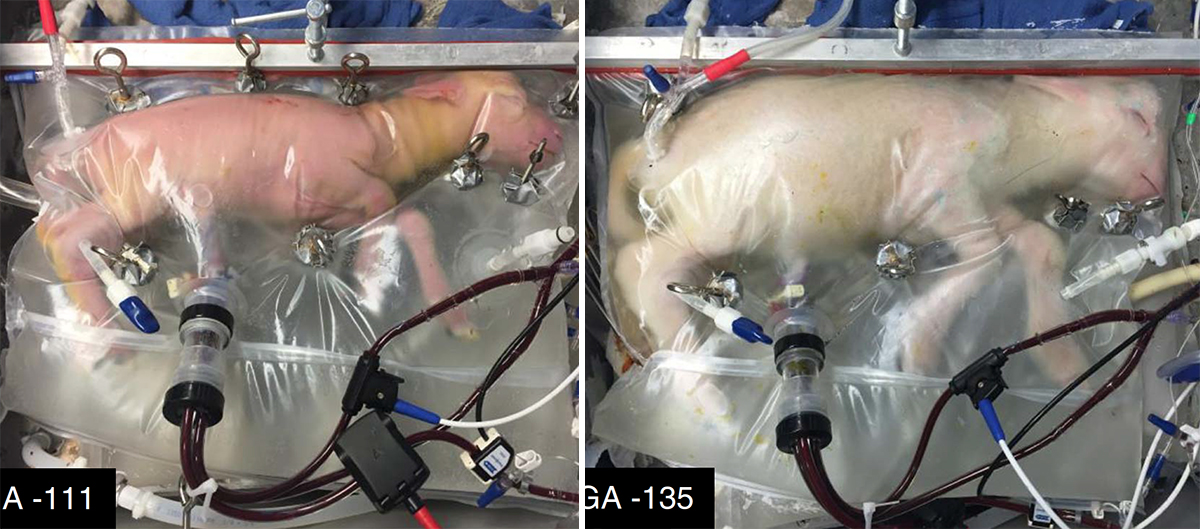Scientists at the Children’s Hospital of Philadelphia have been able to keep premature 23-week-old lambs alive using an artificial womb. Scientists are hopeful that this technology could limit mortality and disease in premature children that are born before 37 weeks.
As per WHO, every year, more than 15 million babies are born preterm, which is a leading cause of infant mortality and morbidity.
Alan Flake, the senior researcher for the study and a fetal surgeon at the Children’s Hospital of Philadelphia (CHOP), said, “These infants have an urgent need for a bridge between the mother’s womb and the outside world. If we can develop an extra-uterine system to support growth and organ maturation for only a few weeks, we can dramatically improve outcomes for extremely premature babies.”
Scientists experimented with eight lambs between 105 to 120 days gestation which is equivalent to about 23 weeks of human development. Scientists placed them inside the artificial womb (a plastic bag with tubes and fluids helping it grow).
Lambs were kept in this artificial womb for four weeks. Surprisingly, all the eight lambs survived and developed normally. In these four weeks, they grew hair, their lungs and brain matured, they could open their eyes, and swallow.
Flake said, “We’ve been extremely successful in replacing the conditions in the womb in our lamb model. They’ve had normal growth. They’ve had normal lung maturation. They’ve had normal brain maturation. They’ve had normal development in every way that we can measure it.”







